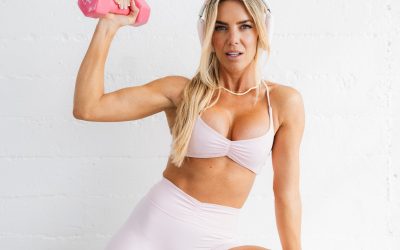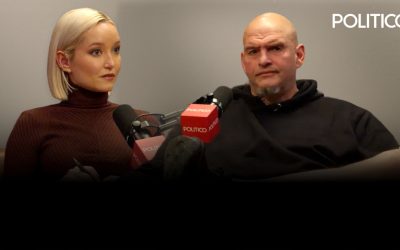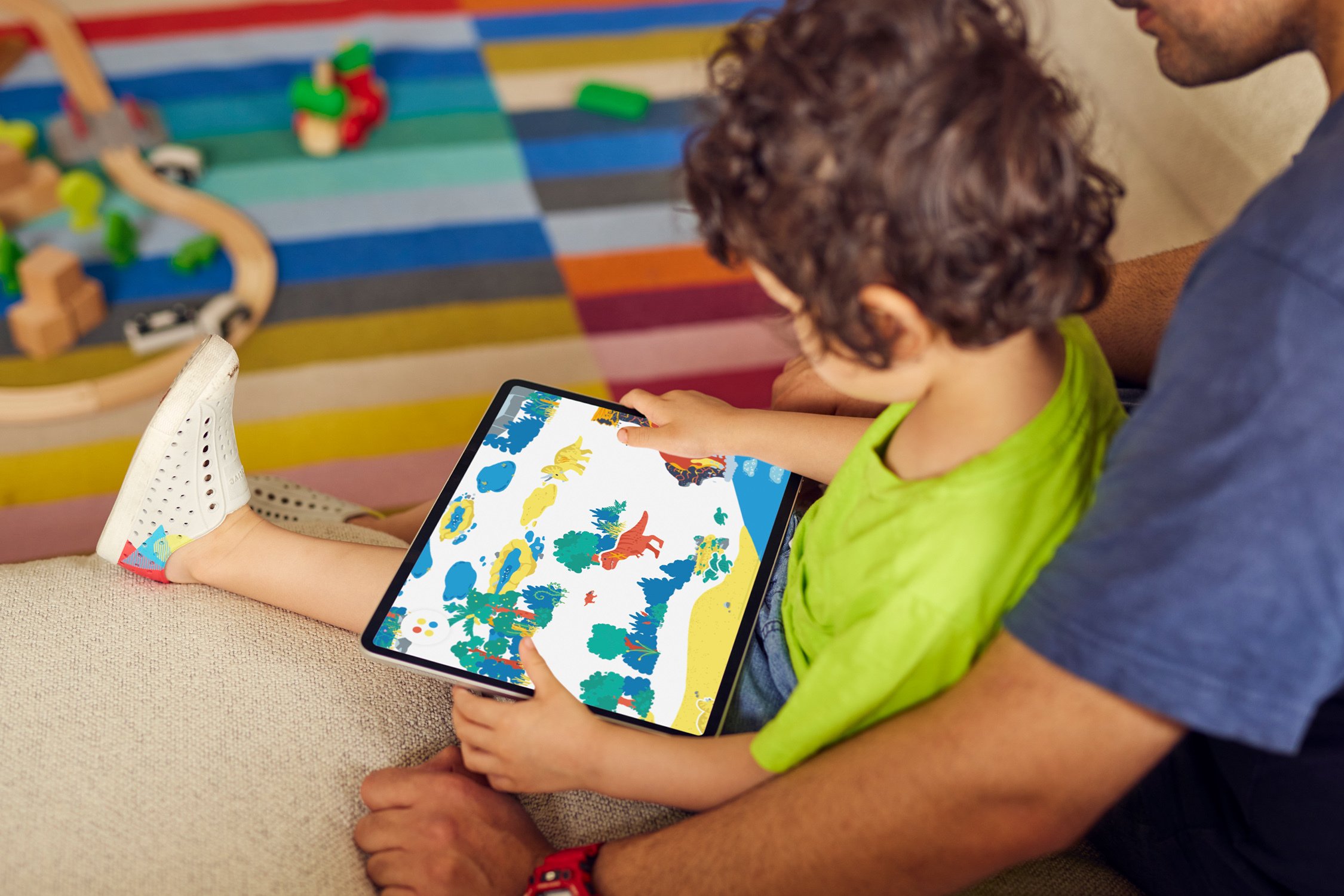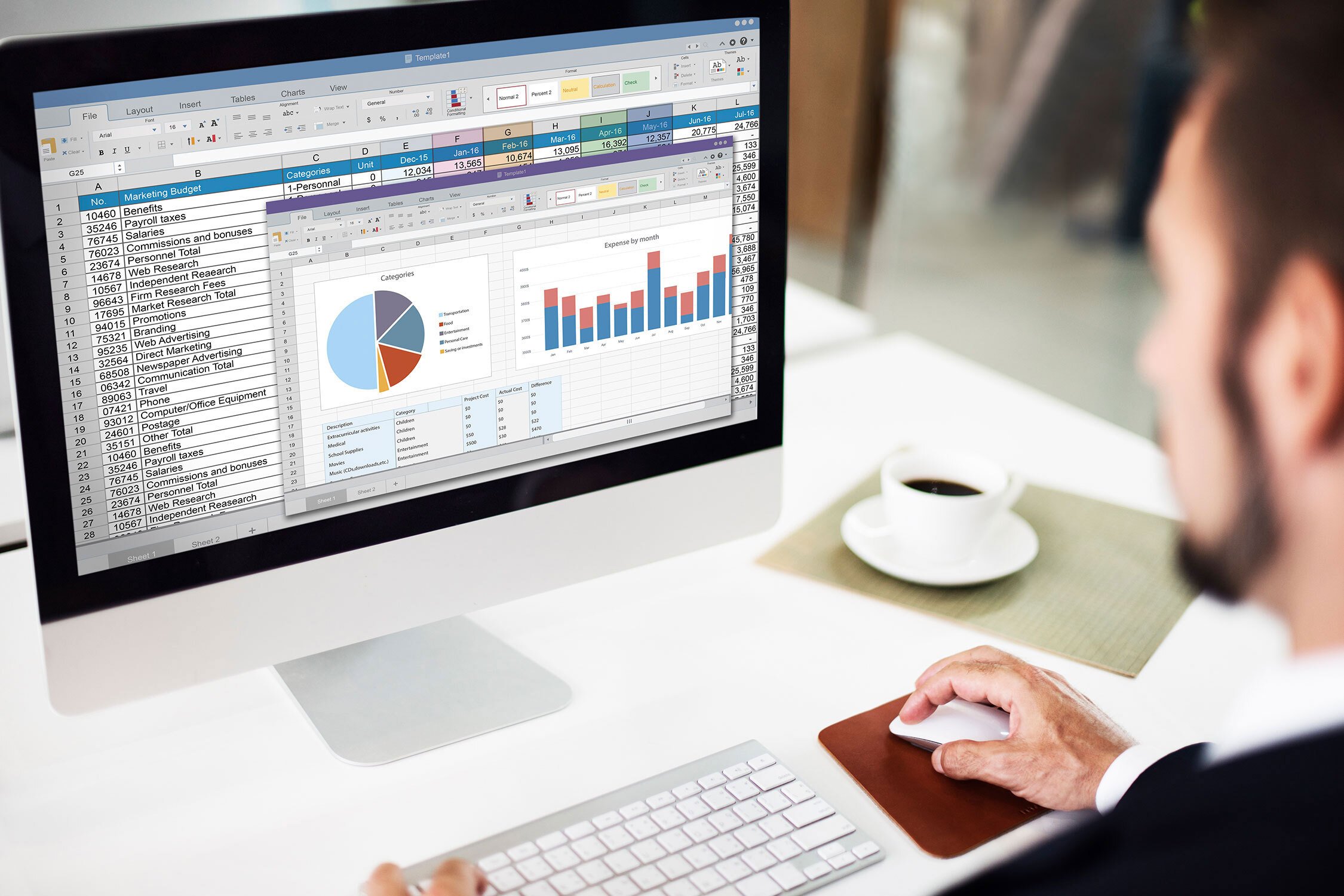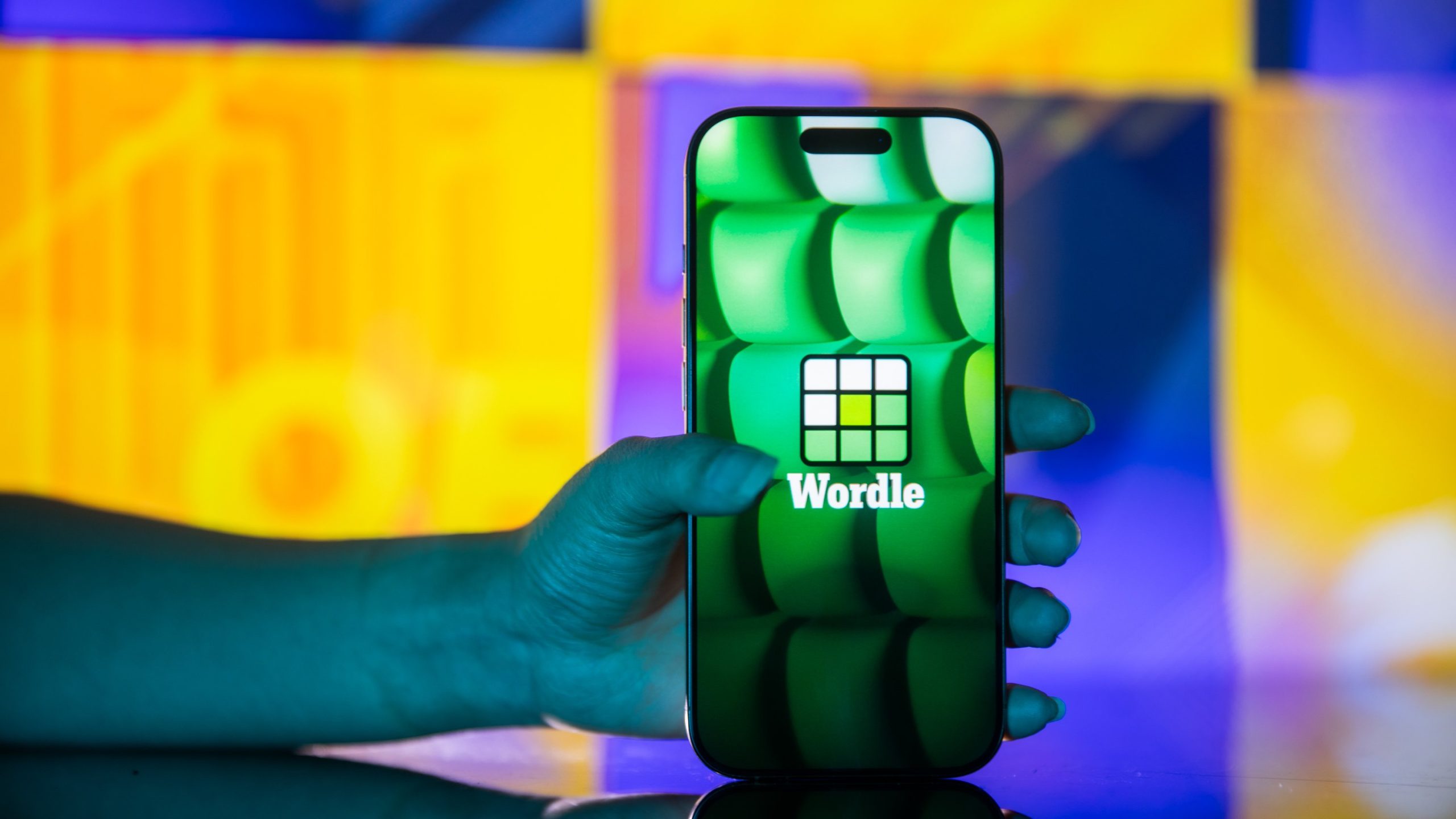The unseen risks creators face when they get political
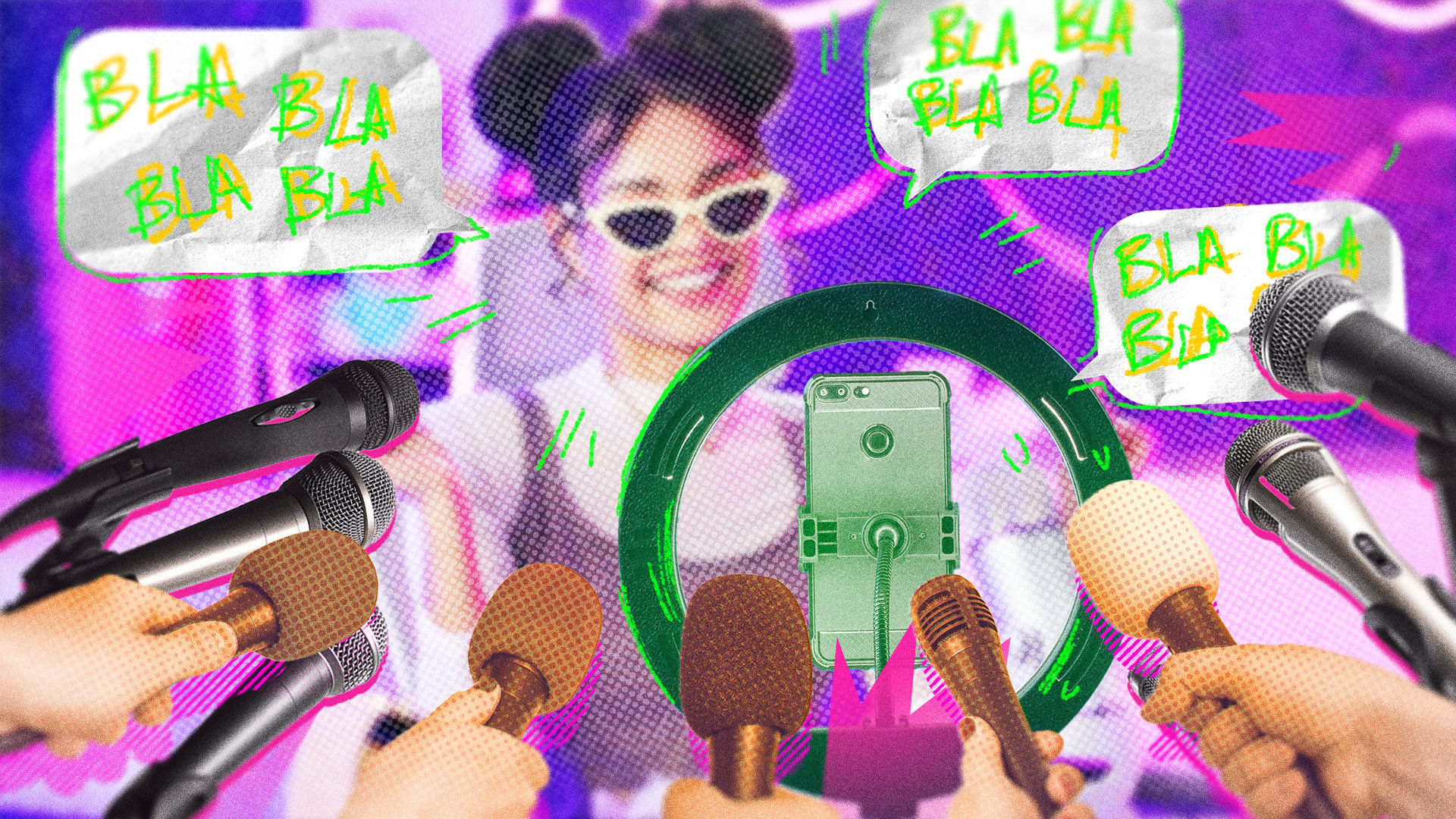
The Supreme Court has been asked to take up a case that could overturn the 2015 ruling legalizing same-sex marriage, and Tefi Pessoa, a lifestyle creator with 1.9 million TikTok followers, can’t understand why more LGBTQ+ creators aren’t talking about it.
“How is anyone LGBTQIA+ in America right now and not talking about gay marriage?” she posted to her Instagram Stories on Tuesday.
In another corner of the internet, Israel’s actions in Gaza — which Amnesty International and the UN have described as genocide — prompted music creator Zay Dante (1.8 million TikTok followers, plus sizable audiences on YouTube and Instagram) to post a video five weeks ago questioning the silence of his peers.
“I was under the impression that we are gathering community to help better people’s lives,” Dante said, “but I’m realizing that a lot of you [sic] get into this job so you can be posted up on a brand trip and get paid $10,000 to say ‘I love Sprite.'”
Earlier this summer, Immigration and Customs Enforcement raids swept through Los Angeles. Lifestyle, beauty, and comedy creator Jenny Solares — who has 3 million followers on TikTok — broke from her usual content to share a raw message about how “families are being torn apart.”
“It was word vomit,” she told Mashable at VidCon 2025 in June. “It was this thing I had to say: Look what’s happening.”
Credit: Instagram screenshot / Tefi Pessoa / Zay Dante / Jenny Solares
These creators don’t typically make political content, but they’re speaking out anyway. Many others remain quiet. Is it shame over their political leanings, as Pessoa suggests in her Stories? A lack of confidence in understanding a complex news story, as Solares noted? Or fear of losing income, as Dante argued?
For creators, silence can be strategic. Speaking out on politics can alienate followers, trigger harassment, and scare off brand deals that pay the bills. But silence carries its own cost: missing the engagement that comes with topical discourse, feeling complicit in injustice, or losing the trust of an audience. This is one of the central tensions influencers and content creators face — the constant calculation between moral obligation and professional survival. Every post is work, and each decision to speak is shaped by the same forces that govern any workplace: risk, reward, and job security.
Audiences are right to want influencers who reflect their values. But until creators are treated as workers with rights, every political post is a gamble with their income and safety — not just a moral choice, but a labor rights issue.
Why the stakes are so high now
If there was ever a time to signal to your followers where your politics — and by extension, your morals — lie, it’s now. President Donald Trump expanded deportation efforts, ordering ICE officers to “do all in their power to achieve the very important goal of delivering the single largest Mass Deportation Program in History.” Protests erupted across Los Angeles, New York City, and other cities across the country. Creators’ silence or outspokenness about human rights violations in Gaza has been a constant undertone online, and during elections, influencers are implored to speak out in favor of their candidates of choice.
This public expectation isn’t new, says Emily Hund, the author of The Influencer Industry: The Quest for Authenticity on Social Media and a research affiliate at the Center on Digital Culture and Society at the University of Pennsylvania’s Annenberg School for Communication. She told Mashable that it began in the late 2010s as audiences became more aware of how the influencer economy worked, then spiked in 2020 as political unrest collided with the pandemic’s surge in online engagement. The result: speaking on current events began to feel urgent, and conspicuous silence more suspicious. Staying quiet started to look like taking a side.
The mounting pressures influencers face to speak up about political crises aren’t just about morality or authenticity. It’s a question of labor. These are workers navigating a new and volatile industry without collective bargaining power, industry standards, or platform accountability; for many, their livelihoods depend on algorithms, brand deals, and audience approval. The question of whether influencers should speak up — about politics, really, about anything — is inseparable from the question of whether they’re allowed to safely do so at work.
The expectation of political engagement despite labor
There’s a joke to be made about how influencers are basically the personality hires of the internet, and while sharing that personality has some risks, it’s also the job.
The influencers are pulled between their many bosses — tech platforms, algorithms, brand partners, and audiences. Tech platforms like Facebook, Instagram, and TikTok limit the spread of political content, making it a difficult tool for creator growth. Some users have complained that the algorithm punishes them for talking about politics, going so far as to claim shadowbanning. And brands don’t want to partner with anyone who might be considered partisan. All the while, audiences want creators to be funny, relatable, transparent about their political leanings, and to use their platforms in ways that reaffirm the viewers’ beliefs. There is no HR department.
Take Madison Humphrey, for example. She has never spoken about politics overtly — in fact, none of the content that has garnered her 3.8 million followers on TikTok has much to do with her own personality at all.
But the suggested search term in a recent video about her engagement was “Madison Humphrey MAGA.”
Click on the search, and you’ll see dozens of videos worrying that she doesn’t align with her fans’ political views — in one case, to the tune of 24,000 views. There’s an expectation for creators, even those like Humphrey and Brittany Broski who aren’t explicitly political, to inform their viewers where they stand politically. That’s part of the job now.
Hund pointed out that taking a stand on anything “means risking a lot,” both by alienating brands or followers.
“Alienating either can result in a financial hit. In the case of alienating followers, there are also personal consequences in the form of dealing with hate messages or worse,” Hund said.
Audiences demand authenticity, but the brands that pay creators want that authenticity with boundaries: Be yourself, but only if that self is as palatable as possible. Dante told Mashable that he missed out on brand deals because he’s been so outspoken on Palestine. But this, too, is difficult to track outright. No one said they wouldn’t partner with him once he started speaking out — the well simply dried up. He said that losing money is “what I ended up having to do. Was it hard for maybe a little bit? Yeah. But was it harder than working a 9-to-5 job? Absolutely not.”
Power without protections
It’s hard to measure exactly how much power influencers have, but even a mild understanding of the grassroots campaigns that political parties stage every year to fundraise, get out the vote, and ultimately shift elections is a good indicator. During the 2024 election, for example, influencers became integral to the success of political campaigns.
Think about Taylor Swift: After she posted on Instagram encouraging her fans to register to vote in 2023, there was a 22.5 percent increase in registrations compared to the previous year, and a 1,226 percent jump in participation in the hour following the post, according to NPR. Of course, the influencers we follow online don’t have the same impact as Swift, but that doesn’t mean their impact is negligible.
“Influencers are increasingly integral to election campaign strategies,” The Conversation wrote in April. “Political campaigns work with influencers to reach audiences traditional media often misses, or to target specific groups with tailored messaging.”
Beyond swaying votes, influencers also spread news. The Pew Research Center reports that nearly 40 percent of young Americans say they regularly get their news from TikTok and are as likely to trust information from social media as from national news outlets. Unlike journalists, influencers and content creators are allowed and encouraged by their viewers to share opinions, too, which can lead to raising money for those in need.
“I feel a personal responsibility to be vocal and be on the right side of history and do good because I’m lucky enough to have this platform.”
– Ayamé
While many influencers monetize their content to pay their own bills, some creators also use their influence to fund causes. Three creators — Ayamé, Yuval, and Oliver — created a faux love triangle to raise huge funds for families in Palestine. Ayamé told Mashable in April that raising over a million dollars for Palestinian families made it clear to her the reality of how much power and influence she holds, and how much good she could do with her platform.
“I feel a personal responsibility to be vocal and be on the right side of history and do good because I’m lucky enough to have this platform,” Ayamé said. “I’d feel almost irresponsible not using it for good on some level. I’m not a political creator. I don’t do a lot of political content, but when there are things that are screaming at you to speak on, I think a lot of other people in the industry also do the same.”
But even that reach doesn’t come with the benefits or job security that usually accompany high-impact work. Political speech from influencers isn’t just “using their platform”— it’s labor performed without the wage protections, benefits, or rights that other workers leverage when their jobs intersect with politics.
A labor rights issue
The disconnect between public expectation and system protection is stark. Influencers are, in effect, gig workers in an unregulated industry. Freelancers have some protections in some states, but the Department of Labor doesn’t even consider influencing a job in the same way it does other gig workers and independent contractors. According to the Washington Post, there’s no specific date for when the Department of Labor began considering influencing a job, but in 2024, the DOL did write that “potentially some content creators” are indexed under gig workers.
Influencers have some protections. Tech companies and platforms have implemented protections for creators’ mental health, like the ability to block accounts, automatically filter hate comments, or disable them altogether. SAG-AFTRA, the labor union that represents actors and other workers in the media, has an influencer agreement, but it’s still in the early stages.
Without established industry standards, creators are forced to navigate public scrutiny and brand politics alone.
Dante hopes for a world in which creators can band together — like a union — to demand respect and protections from the tech companies that make money from their content. This would allow creators to feel more comfortable speaking their minds without fearing backlash from the platforms themselves.
And, as Hund says, “systems, not individuals, need to hold influencers accountable.”
“Social media platforms, brands, marketing agencies, and influencers need to come together as an industry and set some shared standards of the trade, as other media industries do,” Hund said. “There needs to be a better shared understanding of what it means to be an influencer, both in practical terms and in terms of their social role.”
Whether or not it is important to you that a creator speaks out about politics, human rights violations, or genocide is a remarkably similar argument to separating the art from the artist. Do that, or don’t do that. But perhaps there’s a way to give creators space to speak up if they want to.
“At the end of the day, if we bog ourselves down with fear about the algorithm and with fear about what it’s gonna do to our money, then I question where our humanity is gone,” Dante said.
Mashable

